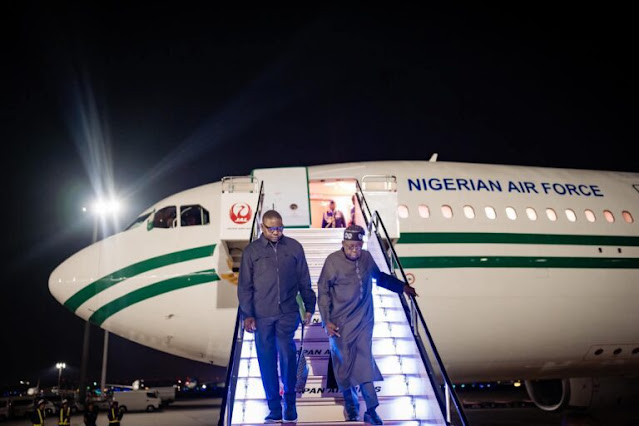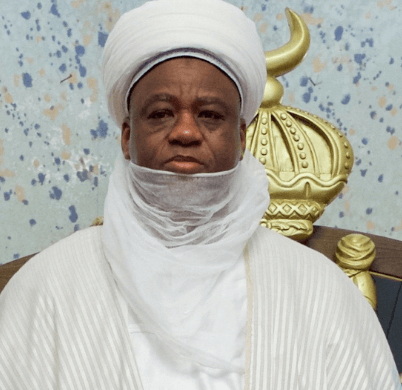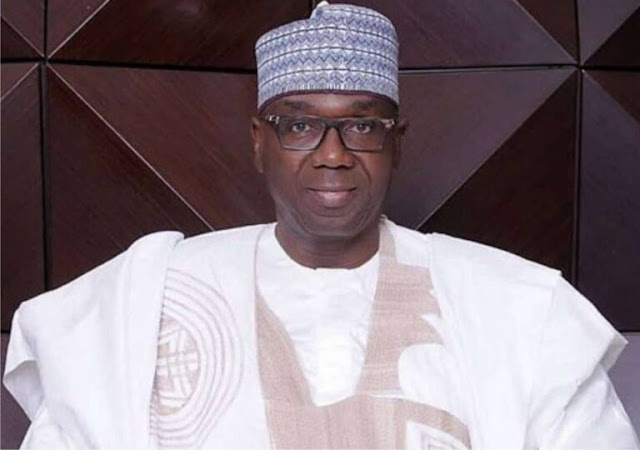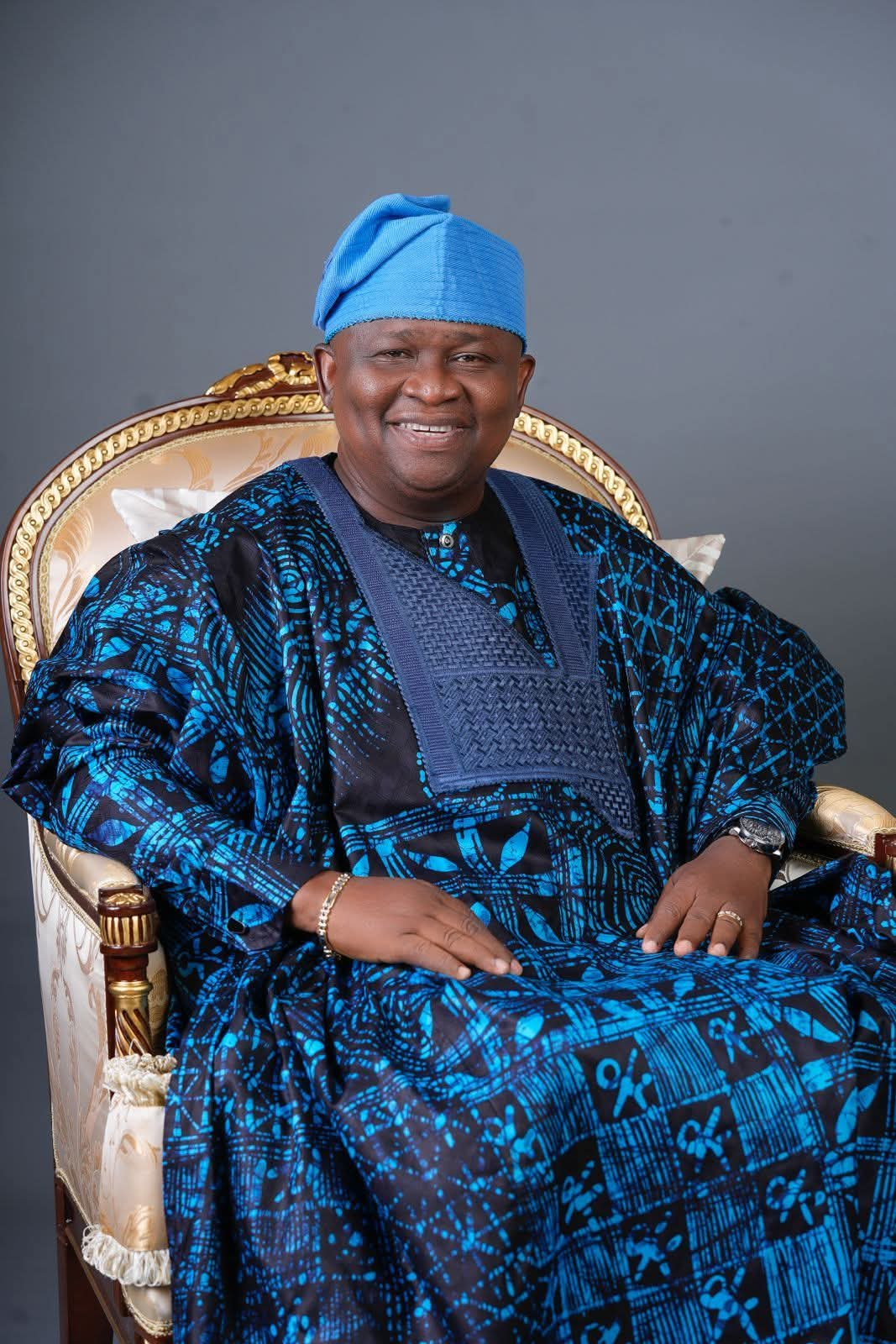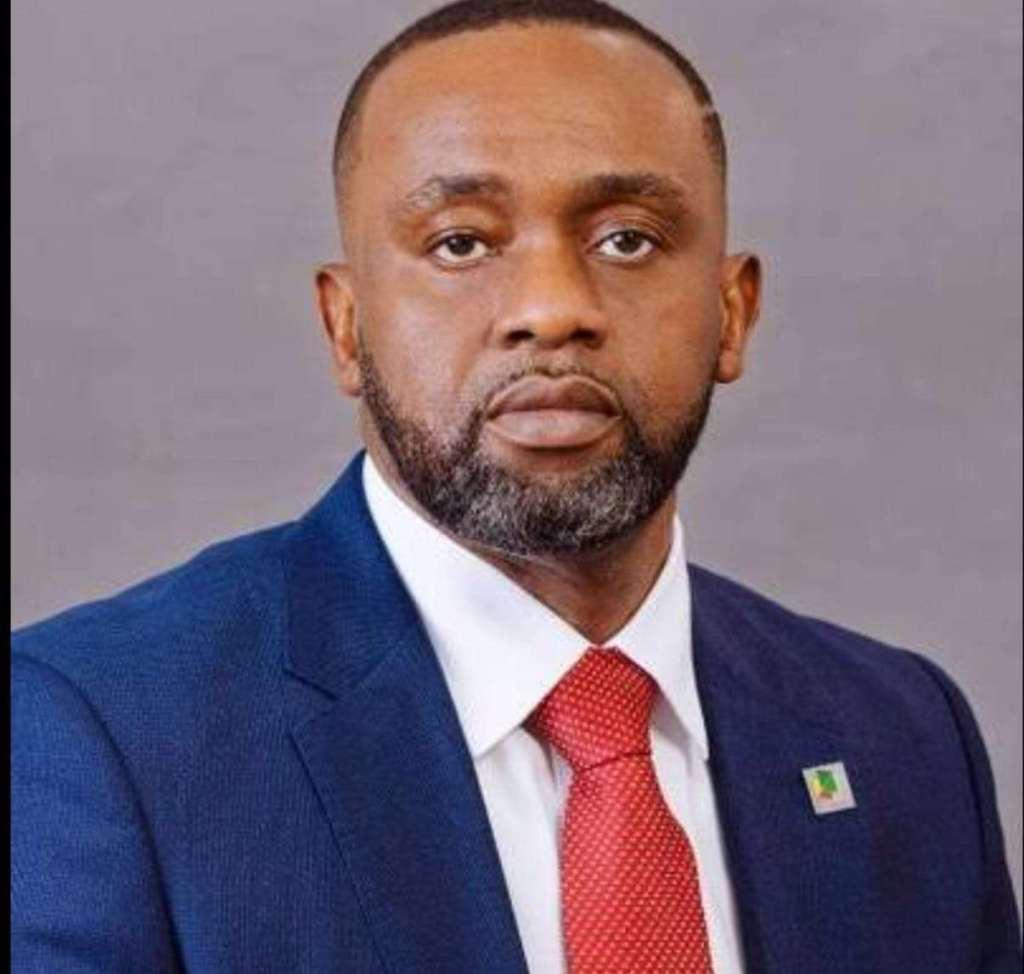BRASÍLIA, Brazil – August 25, 2025 – President Bola Ahmed Tinubu arrived in Brasília, Brazil, on Monday, August 25, 2025, to commence a state visit aimed at deepening the longstanding diplomatic and economic ties between Nigeria and Brazil. Arriving from Los Angeles, United States, President Tinubu was warmly received at the Brasília Air Base by senior Brazilian officials, including Ambassador Carlos Sérgio Sobral Duarte, Secretary for Africa and the Middle East, and Ambassador Carlos José Areias Moreno Garcete, Brazil’s Ambassador to Nigeria. Nigeria’s Minister of State for Foreign Affairs, Bianca Ojukwu, was also present at the reception, underscoring the significance of the visit. The visit, marked by a packed program of bilateral talks, Memoranda of Understanding (MoU) signings, and high-level engagements, reflects the growing partnership between the two nations. This report provides a comprehensive analysis of President Tinubu’s visit, the historical context of Nigeria-Brazil relations, the strategic importance of the visit, and its implications for Nigeria’s economic development, food security, and global diplomacy.
A Warm Welcome in Brasília
President Tinubu’s arrival at the Brasília Air Base on August 25, 2025, marked the beginning of a significant state visit aimed at strengthening Nigeria-Brazil relations. The presence of senior Brazilian officials, including Ambassador Carlos Sérgio Sobral Duarte and Ambassador Carlos José Areias Moreno Garcete, highlighted the importance Brazil places on its relationship with Nigeria, Africa’s most populous nation and largest economy. The inclusion of Nigeria’s Minister of State for Foreign Affairs, Bianca Ojukwu, in the reception party underscored the visit’s diplomatic weight, signaling Nigeria’s commitment to fostering robust ties with Latin America’s largest economy.
Upon arrival, President Tinubu was later welcomed at his hotel by a delegation comprising Nigerian ministers, heads of key government agencies, and private sector representatives. This group, poised to participate in bilateral talks and MoU signings, reflects the multifaceted nature of the visit, which spans government-to-government cooperation and private sector engagement. The official welcoming ceremony, scheduled for Monday at the Planalto Palace, will feature full military honors, symbolizing the high regard in which Nigeria is held by Brazil.
At the Planalto Palace, President Tinubu will hold a tête-à-tête with President Luiz Inácio Lula da Silva, followed by expanded bilateral meetings attended by senior officials from both governments. These discussions are expected to cover critical areas such as trade, agriculture, energy, defense, and counternarcotics. The leaders will also witness the signing of several Memoranda of Understanding (MoUs), reinforcing commitments made under the Mechanism for Strategic Dialogue. A joint press conference will follow, providing a platform for both leaders to articulate their shared vision for enhanced cooperation.
President Tinubu’s itinerary includes meetings with the President of the Brazilian Senate, the President of the Chamber of Deputies, and the President of the Supreme Federal Court at the National Congress, underscoring the comprehensive nature of the visit. Additionally, he will participate in the Nigeria-Brazil Business Forum, a key event aimed at fostering private sector collaboration and investment opportunities. These engagements highlight the strategic importance of the visit in strengthening diplomatic, economic, and institutional ties between the two nations.
Historical Context: Nigeria-Brazil Relations
Nigeria and Brazil share a rich history of diplomatic relations dating back to the early 1960s. Brazil was the only Latin American country to participate in Nigeria’s independence celebrations on October 1, 1960, a gesture that laid the foundation for enduring ties. Nigeria formally established its Embassy in Brazil on October 18, 1966, marking a significant milestone in bilateral relations. Over the decades, the two countries have cultivated cordial ties, driven by shared interests in economic development, cultural exchange, and global governance.
Since President Tinubu’s inauguration on May 29, 2023, Nigeria-Brazil relations have experienced a renaissance, marked by high-level engagements and strategic partnerships. President Tinubu’s participation in the BRICS Leaders’ Summit in Rio de Janeiro in July 2025 and the G20 Summit in Brazil in November 2024, at the invitation of President Lula, underscored Nigeria’s growing prominence in global forums. These summits provided platforms for both leaders to discuss mutual priorities, including trade, food security, and sustainable development.
Brazilian Vice President Geraldo Alckmin and his wife, Maria Lúcia Alckmin, visited Abuja from June 25–26, 2025, for the Second Session of the Mechanism for Strategic Dialogue, a framework established in 2013 to foster cooperation in agriculture, trade, defense, energy, education, power, petroleum, and mining. The session resulted in the signing of seven MoUs, covering areas such as strategic dialogue renewal, defense cooperation, energy, tourism, audio-visual co-production, livestock development, and counternarcotics. These agreements reflect the breadth of Nigeria-Brazil collaboration and the commitment to translating diplomatic ties into tangible outcomes.
Nigeria’s Minister of Foreign Affairs, Ambassador Yusuf Maitama Tuggar, participated in the BRICS Foreign Ministers’ Summit in Rio de Janeiro from April 28–29, 2025, while Brazilian Foreign Minister Mauro Vieira visited Abuja on March 12, 2025. These reciprocal visits demonstrate the deepening engagement between the two nations, positioning them as strategic partners in addressing global challenges like food insecurity, climate change, and economic inequality.
The Mechanism for Strategic Dialogue
The Mechanism for Strategic Dialogue, established through an MoU in 2013, is a cornerstone of Nigeria-Brazil cooperation. Co-chaired by the vice presidents of both countries, the mechanism alternates annually and serves as a platform for coordinating bilateral initiatives. The Second Session, held in Abuja from June 23–25, 2025, was a landmark event, resulting in seven MoUs that have expanded the scope of collaboration. These agreements include:
Strategic Dialogue Mechanism Cooperation Renewal: Reaffirming the commitment to regular high-level engagements.
Defense Cooperation: Enhancing military collaboration, including training and counterterrorism efforts.
Energy: Promoting investments in renewable energy and oil and gas exploration.
Tourism: Encouraging cultural exchange and tourism development.
Audio-Visual Co-Production: Fostering collaboration in film and media industries.
Livestock Development: Supporting Nigeria’s livestock sector through technology transfer and capacity building.
Counternarcotics: Strengthening efforts to combat drug trafficking and related crimes.
These MoUs reflect the diverse areas of cooperation, aligning with Nigeria’s Renewed Hope Agenda, which prioritizes economic diversification, food security, and job creation. The Mechanism for Strategic Dialogue has proven effective in translating diplomatic commitments into actionable projects, as evidenced by the $2.5 billion JBS investment and the Green Imperative Programme (GIP).
Key Economic Initiatives: Food Security and Agricultural Mechanization
Brazil is a key partner in Nigeria’s food security program, a critical component of President Tinubu’s economic agenda. The $2.5 billion JBS investment, signed during the 2024 G20 Leaders’ Summit in Brazil, aims to strengthen food security and develop sustainable supply chains. JBS, a global leader in meat processing, is working with Nigerian partners to boost local production of poultry, beef, and dairy, creating job opportunities for Nigerian youth and reducing reliance on food imports, which cost Nigeria over $10 billion annually, according to the NBS.
The Green Imperative Programme (GIP), a $1.1 billion agricultural mechanization initiative launched in 2019, is another flagship project supported by Brazil. The program aims to supply 10,000 tractors and 50,000 units of farm equipment for assembly in Nigeria, enhancing agricultural productivity and supporting rural economies. By leveraging Brazil’s expertise in mechanized agriculture, the GIP addresses Nigeria’s low mechanization rate, which stands at 0.3 tractors per 1,000 hectares compared to Brazil’s 2.5, per World Bank data.
These initiatives are critical in a context of economic challenges, including a 21.88% headline inflation rate in July 2025 and a 22.74% food inflation rate (NBS). The naira’s 41.4% depreciation in 2024 has increased the cost of imported food and inputs, while the CBN’s 26.75% Monetary Policy Rate has raised borrowing costs. By boosting local production, the JBS investment and GIP aim to stabilize food prices, create jobs, and enhance Nigeria’s food security.
Economic and Social Context
Nigeria’s economic landscape presents both challenges and opportunities for the Nigeria-Brazil partnership. The NBS reported a 38.9% poverty rate, with 87 million Nigerians living below the poverty line, according to World Bank estimates. The 30% out-of-school rate among children (UNICEF, 2023) and a maternal mortality rate of 576 per 100,000 live births highlight social challenges that require urgent investment. The maritime sector, a key area of collaboration with Brazil, contributes 8% to GDP but faces challenges like piracy, which accounted for 95% of global maritime kidnappings in 2023 (International Maritime Bureau).
Brazil, with a GDP of $2.1 trillion (2024, IMF), offers expertise in agriculture, renewable energy, and manufacturing, which Nigeria can leverage to address these challenges. The Nigeria-Brazil Business Forum during Tinubu’s visit will explore opportunities in agribusiness, energy, and technology, fostering private sector collaboration to drive economic growth.
Stakeholder Reactions
The state visit elicited widespread praise. Foreign policy expert Dr. Amina Mohammed described it as “a milestone in Nigeria’s global engagement.” Nigerian business leader Aliko Dangote said, “The JBS investment and GIP will transform our agricultural sector.” Brazilian Ambassador Garcete emphasized, “This visit strengthens our shared commitment to sustainable development.”
However, some stakeholders called for transparency in MoU implementation. “We need clear metrics to ensure these agreements benefit ordinary Nigerians,” said civil society leader Chinedu Okeke. Farmers’ groups expressed optimism, with Yusuf Abdullahi of the All Farmers Association stating, “Brazil’s expertise can boost our yields and incomes.”
Implications for Nigeria and Global Diplomacy
The state visit has far-reaching implications. For Nigeria, it could enhance food security, create jobs, and attract FDI, which fell to $3.3 billion in 2024 (UNCTAD). Diplomatically, it strengthens Nigeria’s role in BRICS and G20, amplifying its voice on global issues like climate change and trade. The partnership could also foster cultural exchange, with Brazil’s vibrant Afro-Brazilian heritage resonating with Nigeria’s cultural diversity.
Challenges and Opportunities
Challenges include economic pressures, implementation capacity, and security risks. Opportunities include job creation, technology transfer, and enhanced global standing. By addressing these, Nigeria can maximize the benefits of the partnership.
Policy Recommendations
Ensure Transparency: Monitor MoU implementation to ensure accountability.
Scale Agricultural Projects: Expand JBS and GIP to reach more farmers.
Strengthen Security: Collaborate with Brazil on maritime security.
Promote Cultural Exchange: Foster tourism and media collaboration.
Address Economic Barriers: Advocate for policies to curb inflation.
Conclusion
President Tinubu’s state visit to Brazil marks a pivotal moment in Nigeria-Brazil relations, reinforcing economic and diplomatic ties. With $2.5 billion in JBS investment and the $1.1 billion GIP, the partnership addresses Nigeria’s food security and economic challenges. By leveraging Brazil’s expertise, Nigeria can drive sustainable growth, create jobs, and enhance its global standing, delivering lasting benefits for its 220 million people.


